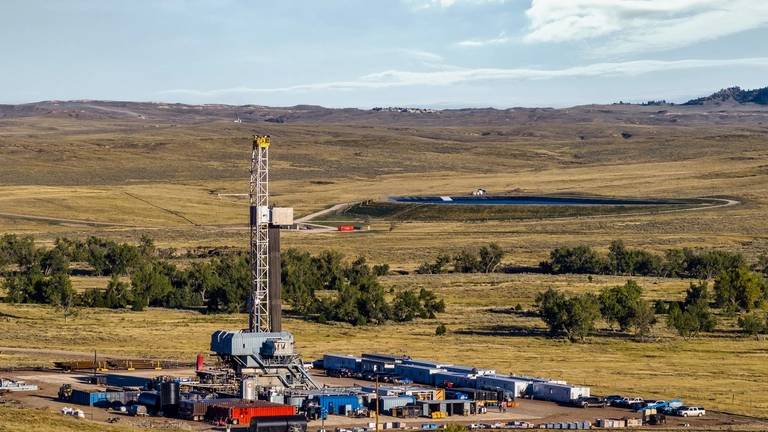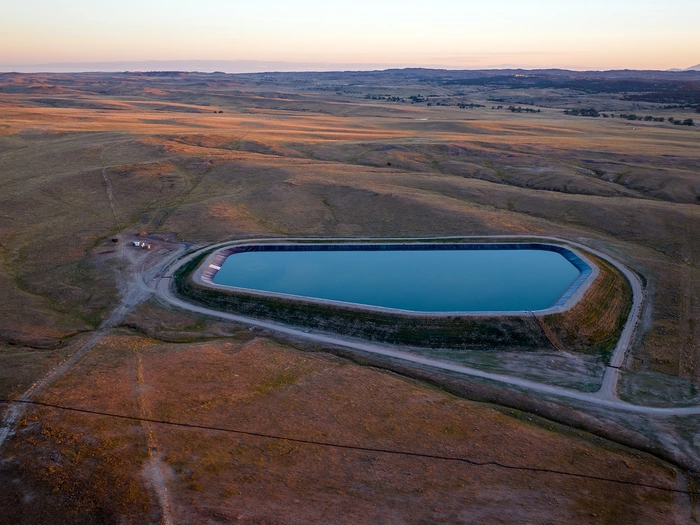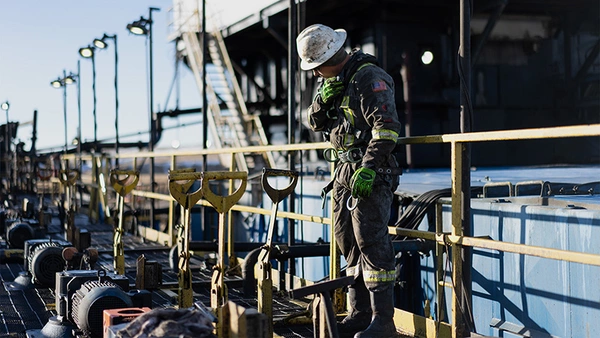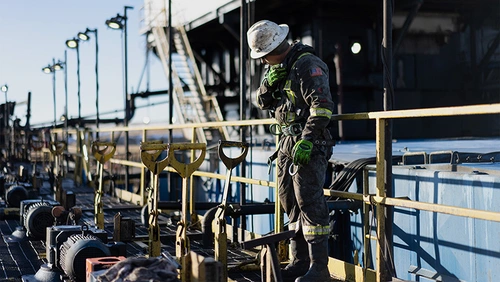
Here you will find all the latest news, company announcements, financial news and ad hoc announcements

We are an international investment company focussing on energy and strategic metals. Become part of our team and help shape the future
Sustainability

Saftey and responsibility are our main priority
Deutsche Rohstoff AG, together with its subsidiaries, is committed to complying with ESG (Environmental, Social and Governance) criteria and has implemented various measures to support this approach.
Together with the relevant authorities, Deutsche Rohstoff is constantly looking for ways to reduce the consumption of resources and is firmly convinced that it is making a contribution to increasing the common welfare without unnecessarily burdening the environment.
Measures to reduce emissions
In terms of reducing CO2 emissions, Deutsche Rohstoff and its subsidiaries have taken measures to reduce Scope 1 and Scope 2 emissions. Truck traffic, noise and exhaust gases have been reduced by electrifying well pads and infrastructure and using pipelines to transport oil and water. Innovative processes such as the "green flowback process" are also used for new wells. This is used, for example, in the joint venture with Oxy and also in the 1876 Resources development program and helps to minimize leaks and prevent gas flaring.

Our commitment to environmental protection

The company's commitment to environmental protection goes beyond the legal requirements. For example, noise barriers are built near residential areas and measuring devices are installed to detect and prevent methane leaks at an early stage. Furthermore, the companies of Deutsche Rohstoff, insofar as they are active as operators in the states of Colorado and Wyoming, take the following measures:
- Protection of groundwater:: The drilling and, in particular, the correct cementing of the wellbore are continuously monitored and documented by the operating companies of Deutsche Rohstoff. This is to ensure that no oil, gas or fluids can escape into groundwater-bearing layers.
- Protection of wildlife: The nesting sites of rare birds, including the bald eagle, the golden eagle or the endangered ground-nesting Sage-Grouse, are documented at regular intervals in publicly available maps. If these are in critical proximity to the group's well pads, no drilling activities are carried out by the operators during the nesting period from February 1 to July 31 of each year.
- Protection of local residents: The Group's operating companies minimize noise emissions by installing noise barriers and, in selected areas, by electrifying the production facilities, and are in constant communication with the authorities about emission levels.
- Protection of the atmosphere: The wells are equipped with emission control devices to monitor whether gas is escaping from the well into the atmosphere. Emission limits have been continuously lowered in recent years. Increasingly, emissions are also being further reduced during drilling, for example through the use of generators that use Compressed Natural Gas (CNG) instead of conventional diesel fuels, thereby reducing the CO2 impact on the environment.
- Clean roads: Getting to and from well pads, water and ultimately oil that is not sold through pipelines is transportation intensive. Damage to or contamination of roads is monitored by Deutsche Rohstoff's operating companies and any contamination is removed promptly.
- Fluid monitoring: Wyoming was the first state to require disclosure of the additives (called fluids) to fracking water that ensure oil flowability, control microbial growth and prevent corrosion. Today, this transparency is required in all federal states in which the Group's operating companies are active.
- Dismantling production facilities: Once oil and gas production has ended, all facilities are uninstalled, the wellbore is professionally sealed and capped and the surface is completely renaturalized. The Group companies set aside appropriate provisions for this every year.
We attach great importance to transparency
In terms of governance and corporate management, Deutsche Rohstoff AG puts great emphasis on trust, transparency, responsibility and consistency. Deutsche Rohstoff communicates transparently with capital market participants and submits regular reports on its business, future plans and strategic risks. Corruption is strictly avoided and compliance with strict ethical standards is a matter of course.
Positive contribution to public welfare
Deutsche Rohstoff AG also aims to achieve a positive impact for the common welfare by creating jobs. The Group's aim is to contribute to social development and promote a sustainable community. Respectful and fair treatment of employees and society as a whole is a further building block in the area of ESG.
Compliance with these guidelines is an integral part of the corporate culture and is the direct responsibility of the Executive Board.





